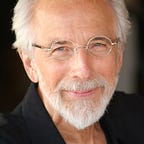The Importance of Learning to Sit Still
In the Summer 2014 issue of The Hedgehog Review: Critical Reflections on Contemporary Culture, Mark Edmundson, of the University of Virginia, addresses the happiness we forsake when we are too distracted to be absorbed in something we love.
In service of his point, he references William Wordsworth who had the “ability to do one thing at a time,” Bertrand Russell who “believed that paying attention was a form of paying your dues in the interest of being able to possess the best that life offers,” and T.S. Eliot who said, “Teach us to sit still.”
Those of us with a philosophical curiosity and inclination, who love to contemplate our autonomy and take seriously living the examined life know of what they speak. The payoff of such focus? The deep absorption and happiness that Edmundson addresses. And the acquisition of a resourceful and substantive life that powerfully informs an independent and forthright voice as well as our day-to-day decisions and actions. This authorial voice, which requires generosity, an open-mind and authenticity, is an accomplishment beyond comparison.
When we sit still and give this voice it’s due, it vets the forces acting on it — the assumptions, the weaknesses and the deadening protocols inherent in the scattered and intellectually uncurious life. This voice recognizes the meaningless posturing, the one-upmanship and the superficiality of everyday conversation. This authorial voice is not satisfied with the mindless clichés concealing the value of a thoughtful subjective life and glossing over the terrible injustices that pock and pummel the earth. Instead, it focuses and reflects upon the concepts that we use to understand ourselves and gives insight into the subjectivity of happiness.
It takes effort, of course. But when we actually sit still and uncover the conceits, false witness and dehumanizing protocols that burden the uncurious life, we are better equipped to acknowledge and confront the chaos that life is: its mysteries, its challenges, its excitements, its contingencies. We’re enlivened and inspired.
In fact, with a little practice, we love and feel at ease with our explored consciousness. Such mindfulness also helps us to create new reaches of expression based on intellectual honesty and the ability to give sustained consideration to important matters.
In a world where so little is certain, we search for information and relevance. Who are we? Is there deep meaning to our lives? Or not? To where are we being led? What is leading us? Pushing us? Pulling us?
When we are resolved to make it matter that we lived at all, the commitment to sit still and confront the bedrock and realities of existence is not too heavy to bear.
- We can take a deeper — less superficial — cut at the opportunity of self-possession.
- We can with deliberative practice build the refined mind and meanings with which we wish to engage the world.
- We can turn our minds to the mobility and originality available in our thinking.
- We can actually learn to relocate ourselves into the world of affinity, connection and joy.
- We can do the right thing, i.e. behave well, in light of America’s experiment with individual freedom.
- We can choose a creative and resilient encounter with life wherein mistakes are quickly acknowledged and corrected, experience metabolized and challenge recognized as the next step in the engagement.
- We can give honest and artful expression to the struggle to matter, to make order and to care.
- We can learn how to re-present ourselves (to ourselves and others) and how to build strong resources such as objectivity and grace under pressure.
When we avail ourselves of the best of human ingenuity and generosity, we serve our commitment to live a life that matters to us as individuals and to us as participants in our families and communities in the mind/world continuum.
As such, autonomous and grateful for our deliberative gift to sit still, to think things through — to live the examined life — we have the means to effectively intervene with sympathetic consideration in the course of fate — both humanity’s and our own.
I’ve been teaching classes on autonomy and life for over 30 years. This coursework offers a philosophic perspective, vocabulary and strategy for acquiring a life of our own design. As an American Philosopher, this work stands firmly on America’s promise of freedom, justice and equality and the opportunity for not just living our life but for owning our life. More information is available on my website: autonomyandlife.com.
